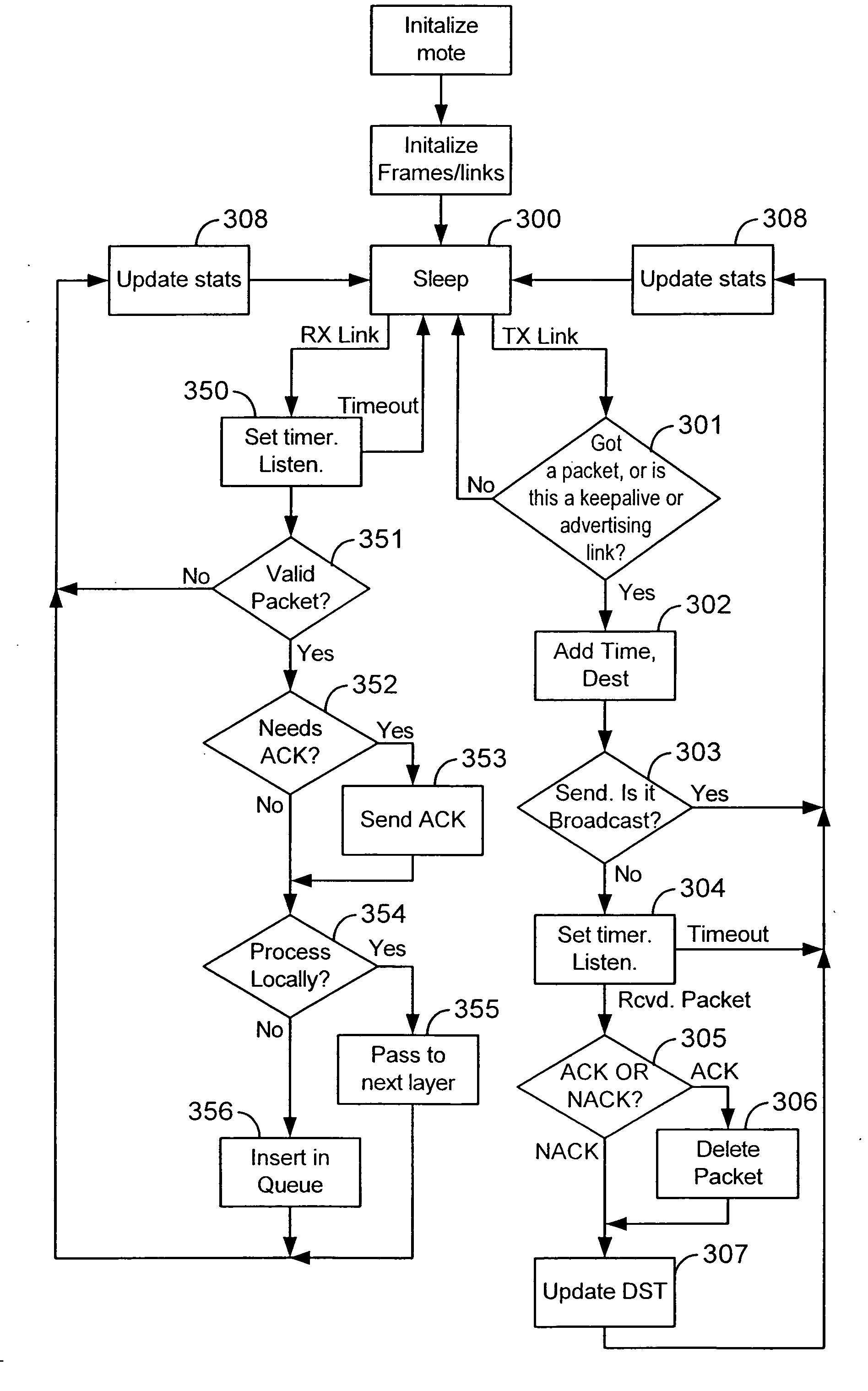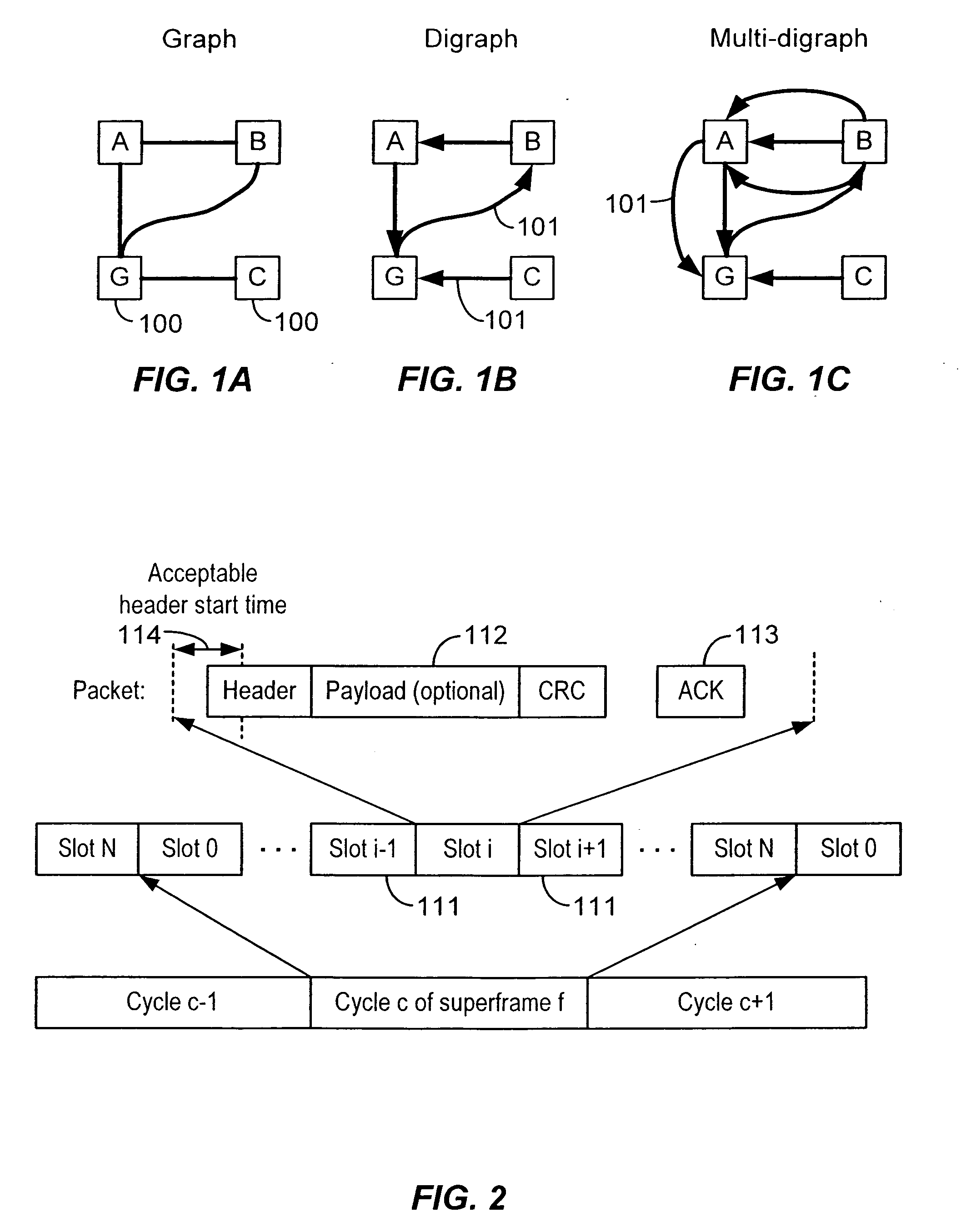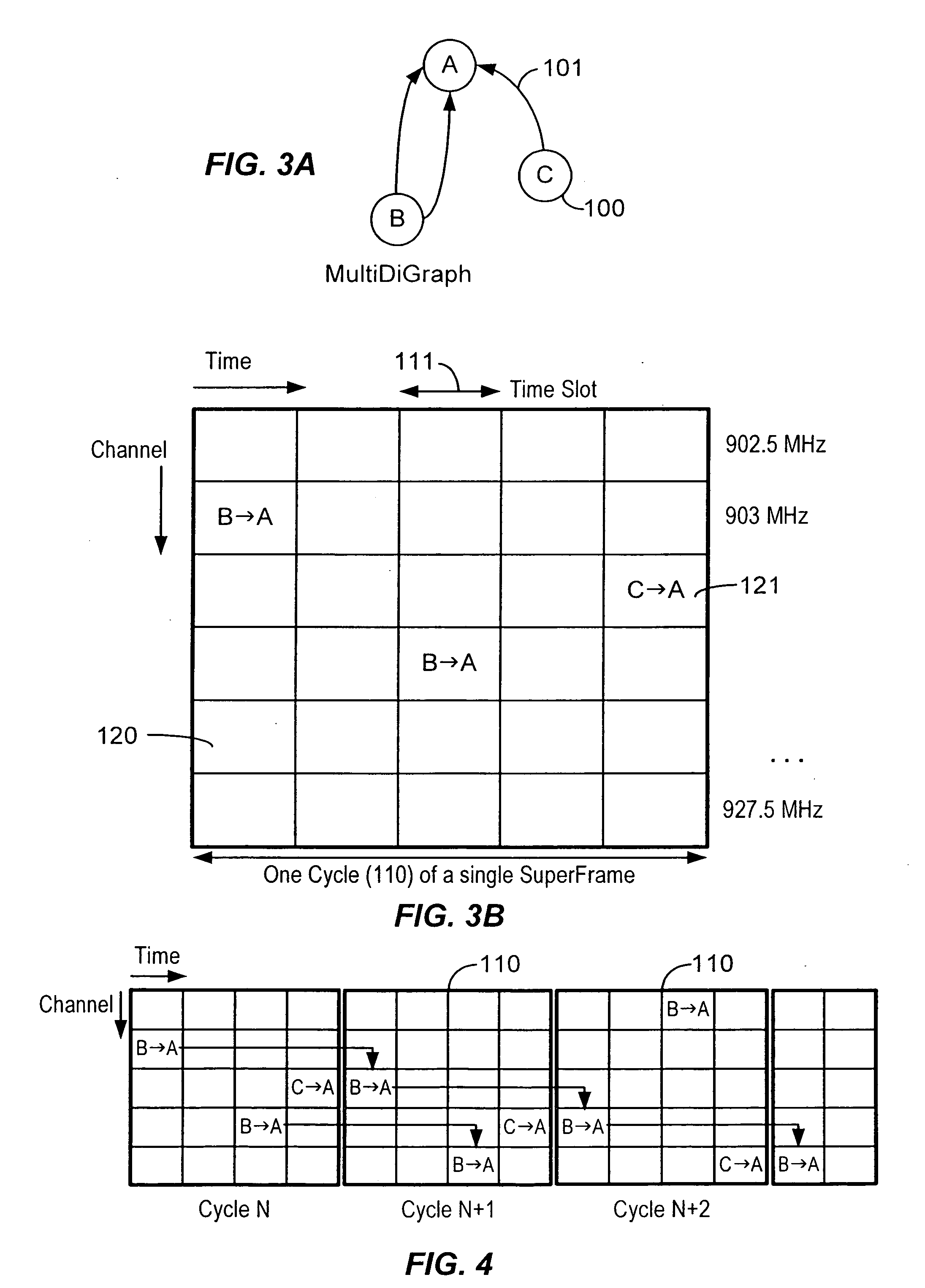Low-power autonomous node for mesh communication network
- Summary
- Abstract
- Description
- Claims
- Application Information
AI Technical Summary
Benefits of technology
Problems solved by technology
Method used
Image
Examples
Embodiment Construction
[0041] In a sensor network, which is one application of the invention, the vertices of a graph, representing the topology of the network, are the sites of intelligent nodes, also designated “motes,” either physical or symbolic, which are capable of analyzing incoming traffic and sensory data and which can act upon the traffic, reroute traffic and originate information from the site. Directed links (101FIG. 1B) between intelligent nodes A, B, C, G represent communication slots, and multiple links or slots (FIG. 1C) provide a mechanism for exhibiting relative available bandwidth between intelligent nodes. Every directed link in a digraph has the capability of transporting one packet in a given communication slot (FIG. 2). Each of these slots has a fixed length and admits the construction of a superframe (FIG. 2) which defines how the links in a given digraph will be distributed in time and frequency.
[0042] Referring to FIG. 2, in accordance with the invention, a slot is a period of t...
PUM
 Login to View More
Login to View More Abstract
Description
Claims
Application Information
 Login to View More
Login to View More - R&D
- Intellectual Property
- Life Sciences
- Materials
- Tech Scout
- Unparalleled Data Quality
- Higher Quality Content
- 60% Fewer Hallucinations
Browse by: Latest US Patents, China's latest patents, Technical Efficacy Thesaurus, Application Domain, Technology Topic, Popular Technical Reports.
© 2025 PatSnap. All rights reserved.Legal|Privacy policy|Modern Slavery Act Transparency Statement|Sitemap|About US| Contact US: help@patsnap.com



